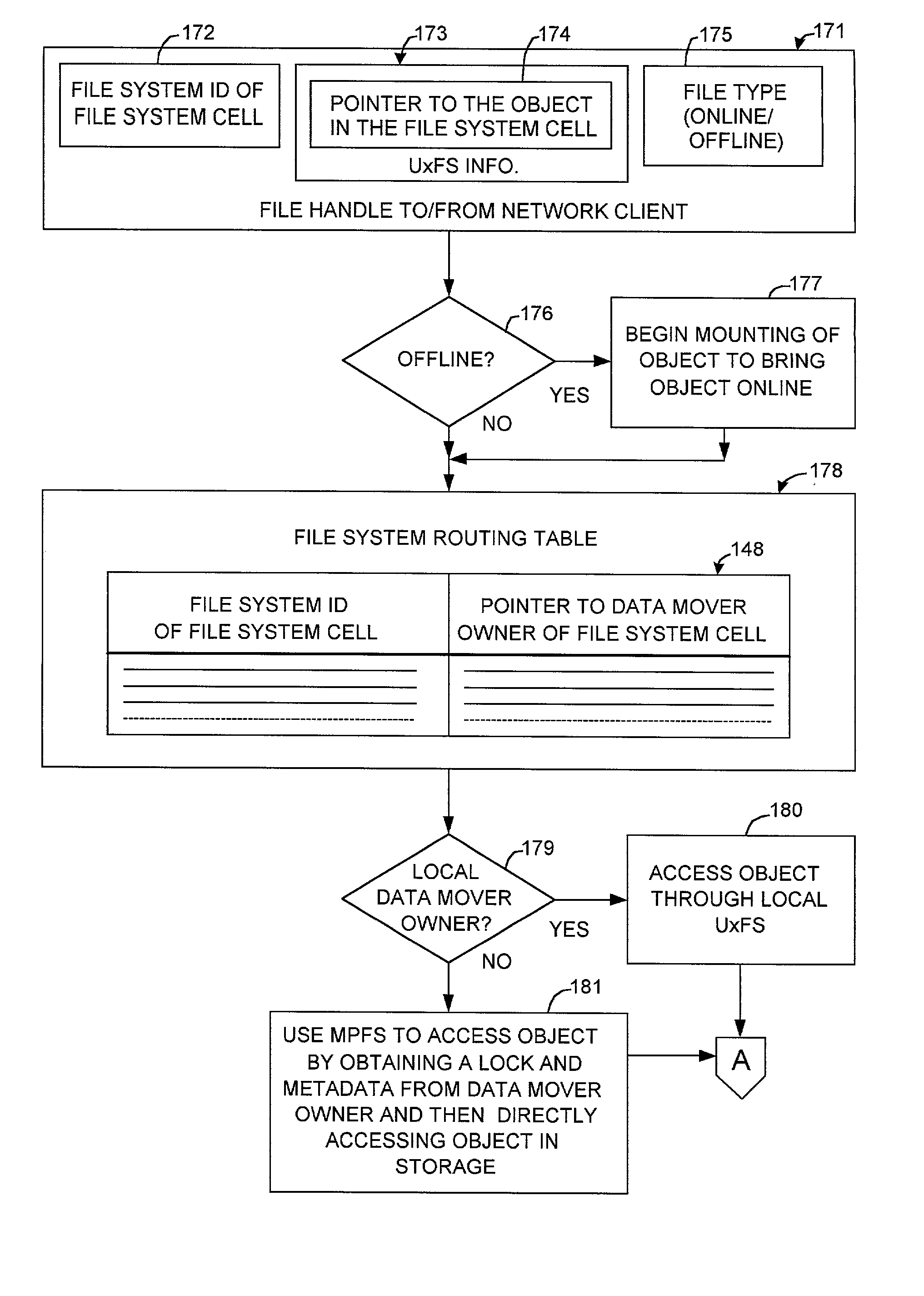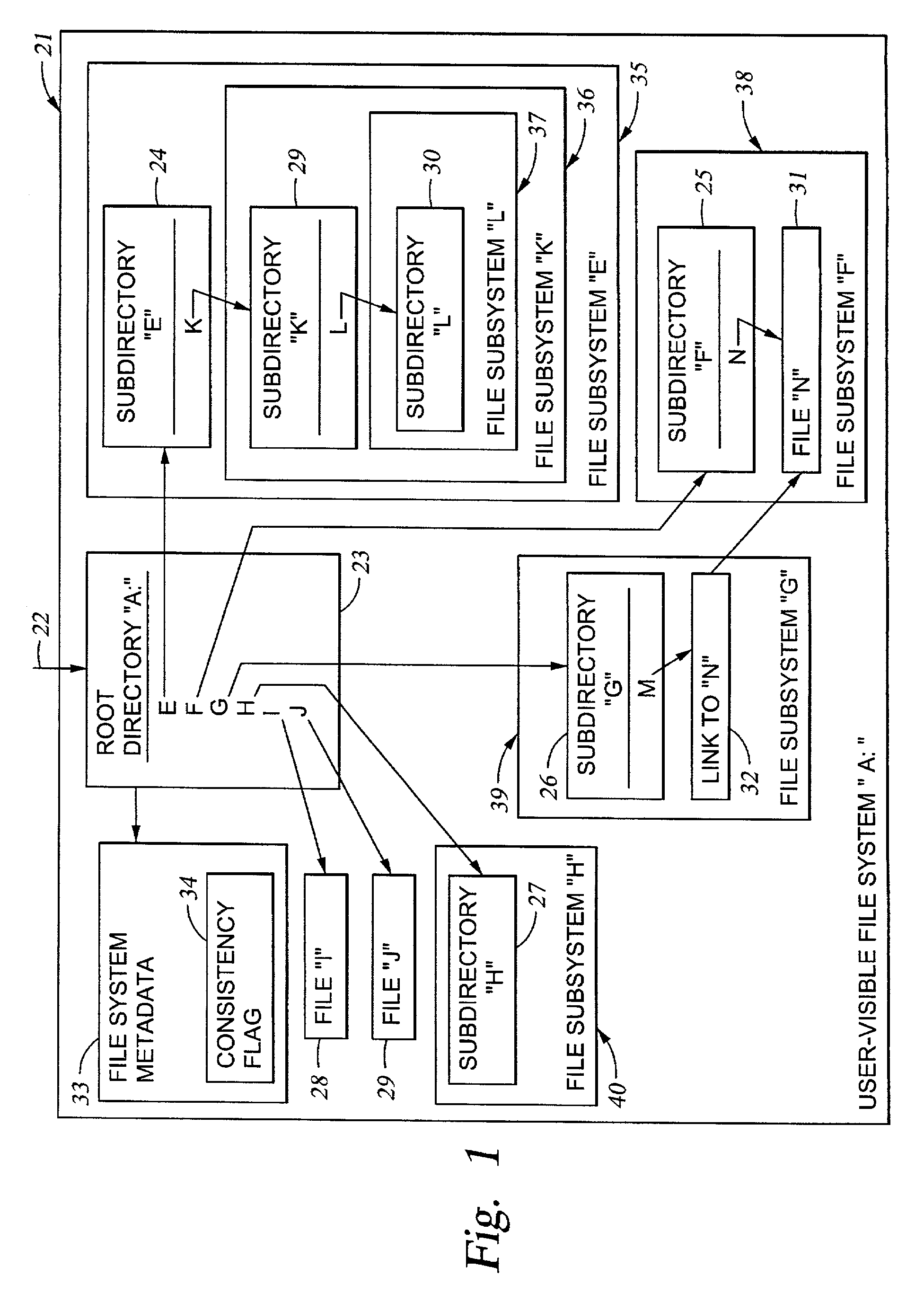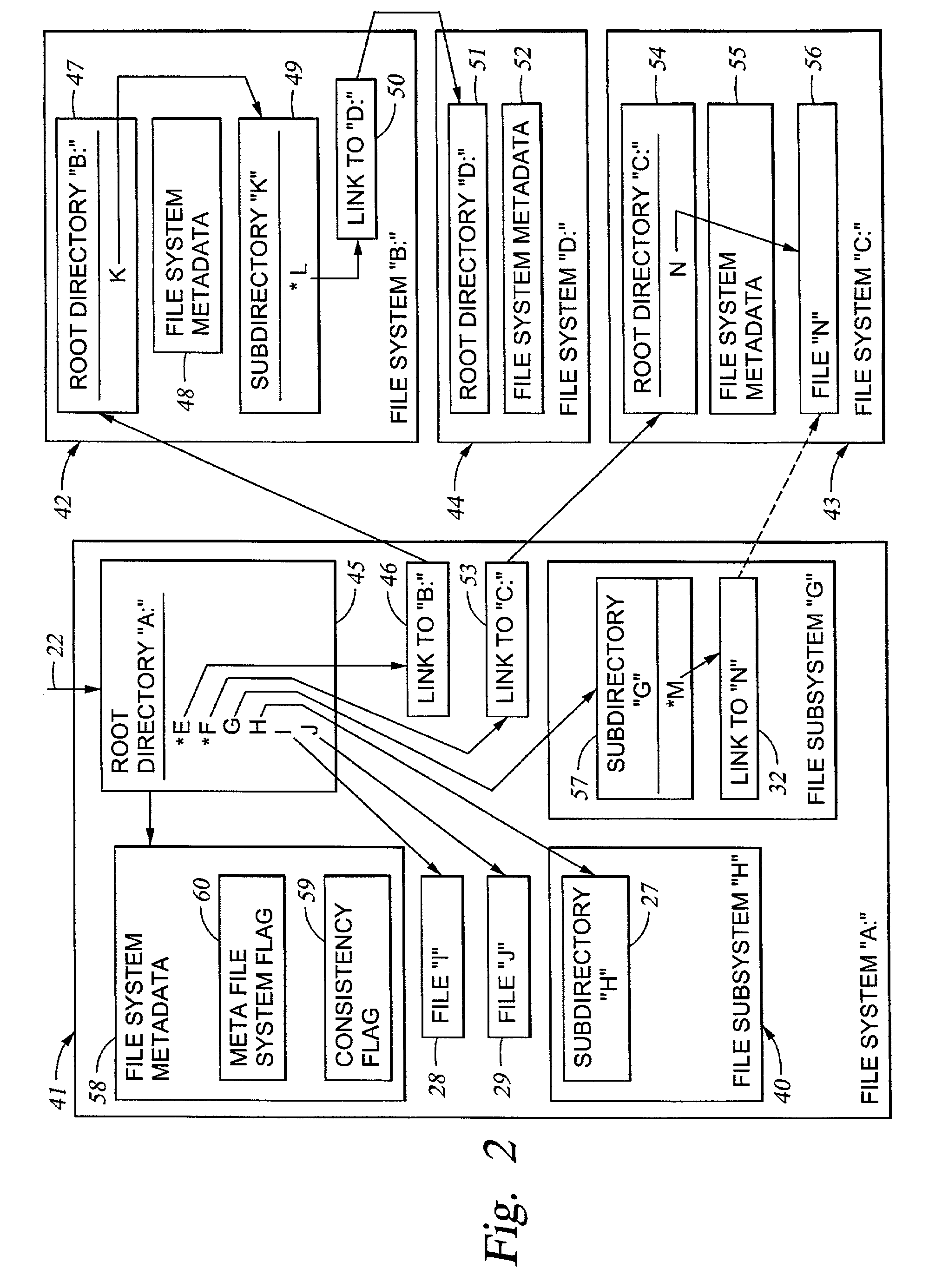Cluster meta file system of file system cells managed by respective data movers of a network file server
a file system and file system technology, applied in the field of file systems, can solve problems such as data consistency problems, conflict between concurrent file access operations, and poor match between the number and size of file systems stored in the network file server and the number of numbers
- Summary
- Abstract
- Description
- Claims
- Application Information
AI Technical Summary
Benefits of technology
Problems solved by technology
Method used
Image
Examples
Embodiment Construction
[0030]With reference to FIG. 1, there is shown a block diagram of a file system 21 as seen by a user or application program. The file system is a hierarchy of data objects such as directories, files, and links. The data objects reside in logical blocks of data storage. Typically a contiguous range of logical block numbers of data storage is allocated to store the file system objects and additional objects that might be added to the file system.
[0031]Typically a user or application program accesses an object in the file system by providing a path name for the object. Given the path name, an operating system program known as a file system manager searches the file system hierarchy for the specified object. The file system manager accesses the file system from an entry point 22, which is the beginning of a root directory 23 named “A:”.
[0032]The root directory has a list of directory entries, each of which points to a file system object. Each entry, for example, includes a name of the o...
PUM
 Login to View More
Login to View More Abstract
Description
Claims
Application Information
 Login to View More
Login to View More - R&D
- Intellectual Property
- Life Sciences
- Materials
- Tech Scout
- Unparalleled Data Quality
- Higher Quality Content
- 60% Fewer Hallucinations
Browse by: Latest US Patents, China's latest patents, Technical Efficacy Thesaurus, Application Domain, Technology Topic, Popular Technical Reports.
© 2025 PatSnap. All rights reserved.Legal|Privacy policy|Modern Slavery Act Transparency Statement|Sitemap|About US| Contact US: help@patsnap.com



